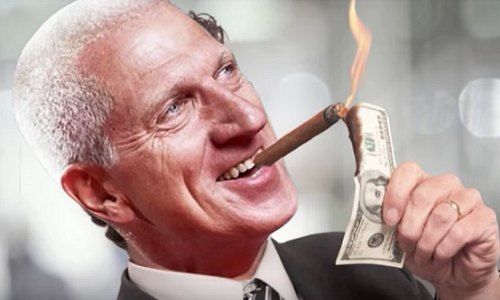Vincenz Kept Ahead of Regulators
Finma began looking into the alleged conflicts of interest with a fitness and probity investigation, but Vincenz kept ahead of regulators by stepping down from his last finance job. This represents the classical Swiss banking way: alleged wrong-doers were permitted to save face by quietly stepping down.
Any misdeeds were largely kept under wraps – in Vincenz’s case, this caused outrage among his colleagues, as finews.com reported last month.
Vincenz represents a departure from this decades-old tradition in Switzerland. Aduno, spooked by media coverage on files leaked from a Swiss private bank as well as the suitability probe, took over where Finma left off. As headless as Raiffeisen was in its approach to Vincenz’s legacy, Aduno led by Zuger Kantonalbank boss Pascal Niquille took it by the book.
Acted in Bad Faith
The cashless payments company hired a Zurich law firm which eventually concluded that Vincenz had acted in bad faith. Aduno elected to pass its findings on to prosecutors in order to open a probe, after Vincenz had given up the chairman’s seat.
If the former banker thought the matter put to bed after the Finma probe was mothballed, the full force of prosecutors’ raids, searches, and interrogation hit him yesterday.
To be sure, Vincenz is innocent until proven guilty – full stop. One conclusion can already be drawn: Raiffeisen comes out of this looking badly. When the suitability probe emerged last October, the bank admitted that «some corporate governance points could be optimized» following months of negotiating with Finma.
Raiffeisen Suddenly Wants Transparency
This week, Raiffeisen offloaded the troublesome Investnet stake, without mentioning Vincenz or Finma. On Wednesday, the bank and Gisel turned on uber-banker Vincenz with the criminal complaint, suddenly invoking the need for «transparency».
Raiffeisen is likely shellshocked by the turn of events, much like Vincenz said he was when authorities knocked on his door in rural Appenzell on Tuesday to inform him that he was under investigation.
The banker turned entrepreneur who loved to steal a march on rivals with quick decision-making now sees himself as a victim of onerous governance rules. In December, he told Swiss tabloid «Blick» as much: «Maybe at times I operated at the boundaries which in hindsight with today’s interpretation of corporate governance would be judged differently.»
- << Back
- Page 2 of 2




































